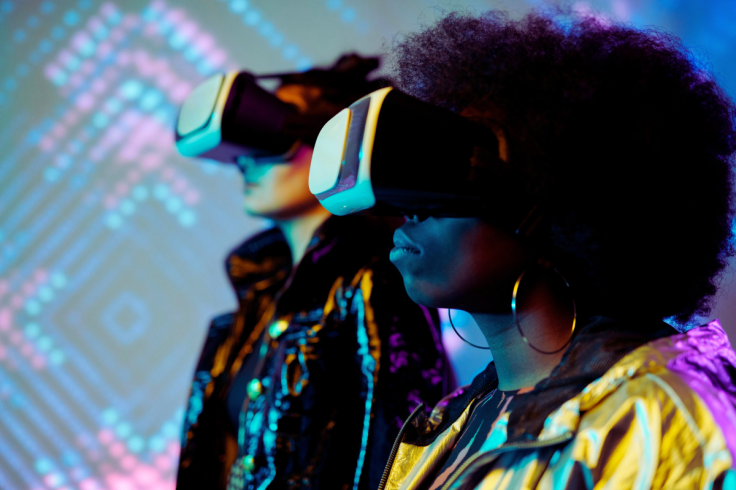Meta's £40/Hour Side Hustle: All You Need Is a Face, a Voice – and Zero Shame
Project Warhol, run by data firm Appen, recruits adults over 18 to participate in two studies: Human Motion and Group Conversations

Meta is offering a quirky side hustle paying £40 ($53) per hour to anyone willing to let cameras capture their smiles, squats, and small talk for its ambitious metaverse project.
Dubbed Project Warhol, this data-collection effort aims to create life-like avatars for virtual reality (VR) and augmented reality (AR) platforms, including Meta's Quest headsets and Ray-Ban smart glasses.
Launched in Pittsburgh, the initiative has sparked curiosity and debate about privacy and the future of digital identity. What's behind this unusual gig, and is it worth the hype?
A Gig Like No Other
Project Warhol, run by data firm Appen, recruits adults over 18 to participate in two studies: Human Motion and Group Conversations, starting in September 2025 at Meta's Pittsburgh research facility.
'We're collecting data to enhance the virtual reality of the future,' a Meta spokesperson told Business Insider on 14 May 2025.
In Human Motion, participants mimic facial expressions, read sentences, and make hand gestures while cameras and sensors record every angle. Group Conversations involves two or three people engaging in light improv and casual chats to capture natural speech and micro-expressions.
Meta targets photorealistic Codec Avatars, a 2019 initiative for 'metric telepresence' that mimics real-world presence in VR, per Medium.
With sessions lasting hours, participants could earn £80–£160 ($106–$212) daily, but the extensive data collection raises privacy concerns, as Appen's consent forms list Meta as the client.
Fueling Meta's Metaverse Ambitions
Meta's push for realistic avatars is central to its 2025 metaverse strategy, which CTO Andrew Bosworth called the 'most critical year' for Reality Labs.
'2025 is the year of greatness,' Bosworth wrote in a leaked memo, per Business Insider on 3 February 2025, urging staff to boost engagement in Horizon Worlds and mixed reality. Reality Labs, despite £47 billion ($62 billion) in losses since 2020, is launching six AI-powered wearables, including advanced Ray-Ban smart glasses, to drive VR adoption.
Project Warhol's data will refine avatars for social and professional settings, from virtual meetings to gaming, competing with platforms like Roblox.
The project builds on Meta's success with Ray-Ban smart glasses, which sold 1 million units in 2024, per The Verge, positioning AR as a bridge to the metaverse.
Yet, past avatar mockery in 2022 highlights the challenge of making digital replicas convincing.
Privacy Risks and Future Stakes
The side hustle's appeal is tempered by privacy worries, as participants surrender detailed biometric data,facial expressions, gestures, and voice patterns. With Reality Labs' £3.3 billion ($4.3 billion) loss in Q1 2025, Meta's high-stakes bet on avatars must deliver, per Business Insider.
'This is a make-or-break year for the metaverse,' Bosworth told staff, warning of a 'legendary misadventure' if traction falters. Participants face no shame but must weigh data exposure against the £40 ($53) payout.
As Meta engages developers for its Orion AR glasses, planned for 2027, Project Warhol's data collection could revolutionise the next computing platform by powering lifelike avatars for virtual reality and augmented reality experiences.
This side hustle, capturing facial and vocal nuances, aims to transform digital interactions in social and professional settings. However, the metaverse's high costs raise doubts about its viability. Will this innovative gig redefine how we connect online, or will Meta's ambitious vision prove financially unsustainable?
The pivotal outcomes of 2025 will determine its success.
© Copyright IBTimes 2025. All rights reserved.





















